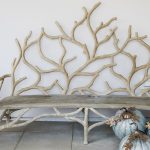A walking (and talking) tour of some of Wilmington’s most beloved watering holes
By Wiley Cash
It’s Sunday night and I’m standing near the bar inside Blue Post, one of the oldest buildings in Wilmington, North Carolina, and easily one of its oldest bars, and I’m staring at the door that leads out to the alley. Even though it’s 2017, it’s easy to imagine a rowdy, bearded band of pirates tumbling through the low entrance after disembarking a ship docked on the Cape Fear. They’re doing their best to steady their sea legs after months of living aboard ship. Perhaps their pockets are full of gold doubloons or jewels or teeth or bullets. I don’t know who they are, or where they’ve been. But I know one thing for certain: They’re here for a drink.
So are we.
At the bar are two bearded voyagers who’ve just returned from explorations of their own. Taylor Brown, author of River of Kings (St. Martin’s Press, 2017), has just come off the road from a long book tour. Jason Frye, culinary critic and author of nine guidebooks based on his travels, has pulled into town after a weekend at a food festival in South Carolina. Taylor has been riding his motorcycle all day. His helmet and gloves are tucked beneath his arm. Jason, fresh from the road, has a sack of dirty clothes waiting in the front seat of his Subaru. I may be the only one who doesn’t smell like a pirate. Not yet, anyway. In a couple of weeks I’ll be hitting the road for a long book tour in support of my new novel, The Last Ballad.
Taylor and Jason come over with our drinks — vodka and soda for Taylor, a stout for Jason, and an IPA for me — and we walk along the wall where crumbling plaster exposes centuries-old brick, and pass into a high-ceilinged, narrow space that connects one half of Blue Post to the other. Legend holds that this was once known as Paradise Alley, where men would congregate to gaze upon the women who were offering themselves from the windows above. The alley was enclosed when the buildings were connected, and while the windows are still there, there are no women or the apparitions of women to be seen, although the darkness and the ghostly glow from the strands of lights snaking through the rafters could easily convince me otherwise.
Jason pulls out his phone and flips through pictures from his weekend at the food festival: Culinary wonders fly past my eyes along with photos of well-known chefs and mouth-watering cocktails. There’s even a photo of Keanu Reeves posing with a group of Jason’s friends. I think about the photos I could return with from my upcoming book tour: a dry hamburger from a TGI Friday’s in an airport I can’t recall; a shot of me alone in my hotel room ironing my pants and wondering if it’s possible to iron a blazer without ruining it; that inevitable book signing where it’s just me and the bookstore employees wondering if it was the rain, the PTA meeting or the Saved by the Bell marathon that kept my devoted fans at home that night.
I look at Taylor. “I don’t see things like this when I’m on the road,” I say.
“Me either,” Taylor says.
Jason, sensing our sadness, slips his phone into his pocket and takes a sip of his beer. He smiles. “Well, if it makes y’all feel better, I didn’t really get a chance to talk to Keanu.”
Writing is a solitary exercise, and although Jason’s work requires him to visit bars and restaurants and other places of interest, most of the time the three of us are used to spending our time alone. I don’t see these two that often, so I’m happy to have this time with them now. The writers of the Lost Generation — Stein, Hemingway and Fitzgerald — had the bars and salons of Paris. The writers of Generation X — Brown, Frye and Cash — have Blue Post in Wilmington.
The place is nearly empty tonight, but a group of M.F.A. students from the university has gathered by the bar. A few of them recognize Taylor and come over to say hello. They’re much younger than us, and they’re excited about being writers in the same way I was excited about being a writer years ago. When my work is going well, I can still tap into that original exuberance, but those days are harder to come by. When your passion becomes your career, the pressures begin to mount in ways that once seemed unimaginable. The three of us ask the students about the courses they’re taking, about their interests, and we share a few stories of our own. I watch the students’ faces change, and soon they politely excuse themselves and head back to their friends by the bar. The three of us finish our drinks and head outside.
“That was brutal,” Jason says.
“Do you think we crushed their dreams?” Taylor asks.
“Probably,” I say. “They’re all going to become business students now.”
We walk up the alley and then take a right on Front Street. A few blocks later we turn right on Orange and then follow the steps down into Lula’s Pub.
Descending into Lula’s gives one the feeling that someone shot a torpedo into a hillside and then fashioned a bar from the crater that was left behind. The ceilings are low, and the stone walls are cool to the touch even on the warmest evenings. The place is lit by stained-glass windows that glow eerily considering that you’re deep underground. The bar, which feels like more of a small room, is also incredibly old, and like most old things in Wilmington, a series of rumors and legends have sprung up around it: It once served to quarantine recently arrived slaves; Outkast shot a music video here; a wealthy family once used it to store expensive wine; it’s haunted by a ghost named Cooter.
For all the things Lula’s could have been, to me it feels like the belly of a small ship. The three of us walk toward its bow and take a seat at a table. After another round of drinks our talk returns to the students we’ve left behind at Blue Post, and we discuss the reasons we first began writing and the writers who’d inspired us to do it.
“I just remember being enthralled with the act of reading,” Taylor says. “It was like stepping into a spell someone else had cast. I wanted to see if I could do it.”
“How’d you learn?” I ask.
“Barry Hannah,” Taylor says. “I listened to dozens of interviews with Barry Hannah. Writing was the most fascinating thing I’d ever heard someone talk about.”
Jason, who holds an M.F.A. degree in poetry, admitted to being inspired by the poets of the Beat Generation, especially Allen Ginsberg. “It was the images and the beauty of the verse,” he says. “I was just so moved by the driving force of the lines.”
I understand exactly how they feel. I can remember the first time I read a book and realized how badly I wanted to capture that magic for myself, and I can remember holding a text in my hand and feeling its pages quiver with their own power. It reminds me of how innocent those early experiences were and how willing I was to explore the act of writing without any idea of where it would take me or what I find once I arrived.
“Are we jaded?” I ask. “Here we are talking about our influences after scaring a bunch of writing students to death.”
“Of course we’re jaded,” Jason says. “We write for a living.”
It’s close to midnight when we find ourselves walking north on the boardwalk along the Cape Fear River. The night is quiet, and we seem to be the only people on foot in downtown. The heat has broken. Cool air rolls off the water. We pass the federal building and turn right on Princess, then turn left on Front.
Orton’s Pool Room bills itself as “America’s Oldest Billiards and Pool Room,” which may be true considering that it was once the basement of the Orton Hotel, which was built in 1885. Although the hotel burned down in 1949, its basement remains, and so do the pool tables. People say that the ghosts of those who perished in the fire remain as well, but as we descend the stairs from the street we realize that tonight the poolroom is probably too well-lit for those ghosts to appear. We take a seat at the bar and repeat the same order we’ve been giving all night: vodka soda, stout, IPA.
Taylor and Jason ask me about the upcoming tour I’ve got planned, and Taylor fills me in on a few bookstores I haven’t yet visited, and Jason begins rattling off restaurants and bars I need to visit in various cities. I find myself taking notes: writing down the names of booksellers Taylor wants me to say hello to, the names of breweries Jason insists I try.
Behind us, a young man and an older gentleman are shooting pool. The young guy is dressed in your standard downtown garb: skinny jeans, T-shirt, a hat turned backward. The older man is wearing a suit without a tie, a fedora tipped down toward a pair of dark sunglasses. A gold chain hangs from his neck and brushes the pool table as he lowers himself to take a shot. A quick glance tells us the young guy is easily outmatched.
The two men pause in the game, and the gentleman excuses himself to take a phone call. The young guy notices our eyes on him, and he shrugs. “He’s killing me,” he says.
“Did you put any money on it?” Taylor asked.
“$20,” the guy says. “I’ve never played for money before.”
“That was probably a bad idea,” Jason says.
The guy winces as if he’s offended. “Oh, yeah,” he says. “Any of y’all play?”
We all shake our heads no.
“What do you do then?” he asks.
“We’re writers,” we say.
The older gentleman returns, takes up his pool cue, and quickly puts the young guy out of his misery. The old guy opens his palm for his $20, and he looks at Taylor, Jason and me where we’re seated at the bar.
“Gentlemen?” he says. He raises an eyebrow, nods toward the table.
No thanks, we all say. Like this shark, the three of us know exactly what we’re doing.
Wiley Cash lives in Wilmington with his wife and their two daughters. His forthcoming novel The Last Ballad is available wherever books are sold.


